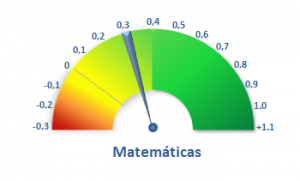Implementing institution: Rosendale Primary School
Country: United Kingdom
Source: Education Endowment Foundation
Execution period: 2010 - in progress
Plataforma de Prácticas Efectivas:
To improve children's metacognition, reflecting on how they learn to develop strategies to improve their learning processes.
28 half-hour weekly sessions, during which students use an application (Evernote) to identify learning strategies and monitor their progress.
Students participating in the intervention have increased their math scores (+0.30 SD), while the impact is less for students benefiting from free school lunches (+0.15 SD).
ReflectED consists of 28 half-hour sessions per week, during which students use an application (Evernote) to identify learning strategies and monitor their progress. The initiative was developed by teachers from Rosendale Primary School, who relied on evidence of metacognition. They argue that the acquisition of knowledge is not dependent on the intelligence of the child, but is the direct product of adapted pedagogical strategies and methods. Therefore, learning can be feasibly influenced by good practices.
Through the Evernote application, students discover a series of techniques for easy learning. They are encouraged to use them through exercises focused on math. They record audios and take notes so that they can monitor —independently— their progress. Teachers also have access to those files, as they need to assess the children’s interest in this or that strategy, as well as to identify children facing difficulties.
28 sessions of application use are organized. Each of these contains a pre-defined curriculum which, in turn, includes goals and tasks for the student. On the ReflectED website, teachers have access to a wide range of resources to guide the process. They may also have individual training if requested.
In England, the enrolment of children at elementary and secondary levels covers almost the entire population of attendance age (99.85% and 98.28% respectively by 2014). Net participation rates have been growing since 2006, especially at the secondary level (+6 percentage points). However, the OECD’s PISA survey has highlighted a decline in reading literacy levels among part of the 15-year-old English population since 2011.
In 2013, the ReflectED program was evaluated by a team from the University of Manchester with funding from the Education Endowment Foundation (EEF), KPMG Foundation and Nominet Trust. The study specifically aimed to evaluate the impacts of the intervention in terms of mathematical outcomes, and its potential to be replicated in 30 other elementary schools.
1,815 grade 5 students, spread across 30 schools, were selected to form the sample, where only half received the program. Comparison of the results of the two groups in math tests has shown an increase of 0.30 SD for the intervention group. In this group, the impact was less for students who benefit from free school lunches (+0.15 SD). Program costs are relatively low (£18.7 per student).
Impact of interventions:

Charts: Impact measured in standard deviations of the intervention group compared to the control group
Link: http://www.reflectedlearning.org.uk/about-ReflectED/
Report: Ver informe
Other documents: Metacognición-reflejada.pngcropped-ReflectEDLogo1-1-e1498882787320.jpg
Tags: